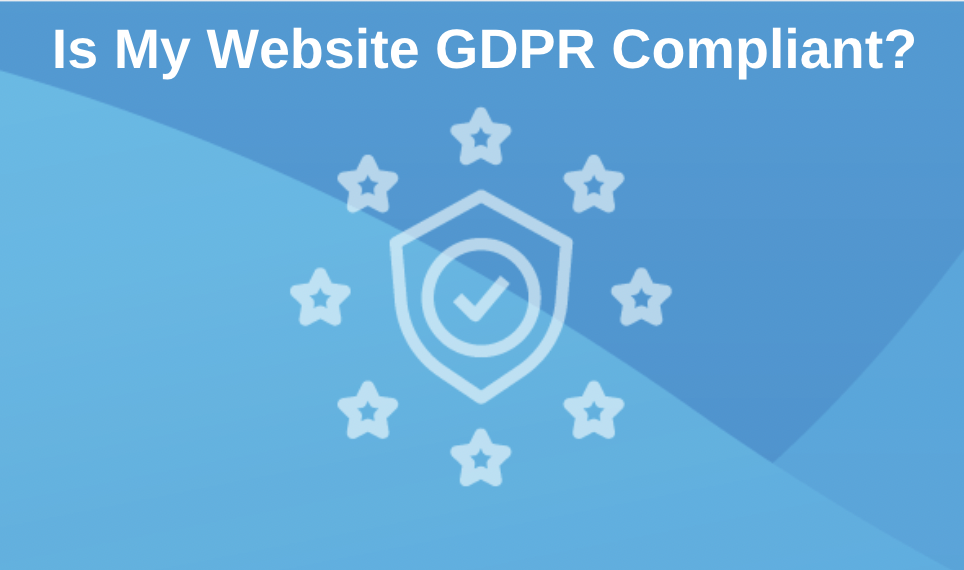It’s essential for all businesses, especially those based in the European Union, to ensure that their website is GDPR compliant. GDPR, or General Data Protection Regulation, is a set of rules that protect the personal data of EU citizens and ensure that organizations who collect data are transparent and accountable. As a business owner, you must make sure that your website is GDPR compliant in order to avoid costly fines and penalties.
But what does it mean to be GDPR compliant? And how can you make sure that your website is up to the standards set by the GDPR? In this article, we’ll discuss the importance of GDPR compliance and provide you with the information you need to make sure your website is GDPR compliant. We’ll also provide tips and resources to help you ensure that your website is compliant and secure.
language
GDPR Compliance for Websites – To ensure your website is GDPR compliant, you should consider the following:
- Ensure all personal data is collected and processed legally and correctly.
- Check whether you need to obtain explicit consent from users before collecting personal data.
- Allow users to view, edit, or delete their personal data.
- Include a privacy policy on your website.
- Securely store all personal data.
You should also review any third-party services you use, such as analytics or advertising, to make sure they are compliant with GDPR regulations.

Is My Website GDPR Compliant?
The General Data Protection Regulation (GDPR) is a stringent set of regulations that have been introduced in the European Union (EU) to protect the personal data of individuals. It is important for all businesses operating within the EU, and websites outside of the EU but targeting EU citizens, to make sure their website is compliant with the GDPR. In this article, we will discuss the steps required to ensure that your website is GDPR compliant.
Understand the GDPR Requirements
The GDPR, as a regulation, is designed to give individuals more control over their personal data and to ensure that organizations are transparent about their data collection and use practices. In order to be GDPR compliant, organizations must ensure that they are transparent about their data collection practices, provide individuals with the right to access and control their data, and protect the data they collect.
Organizations must also provide a way for individuals to exercise the rights granted to them under the GDPR, such as the right to access, correct, or delete their data. They must also provide individuals with a way to raise any concerns they have regarding the use of their data. Finally, organizations must ensure that they have appropriate security measures in place to protect personal data.
Update Your Website and Privacy Policy
Once you have a thorough understanding of the GDPR requirements, you need to update your website and privacy policy. Your website should clearly explain how you collect and use personal data and what rights individuals have in relation to their data. Your privacy policy should include information on how you collect and use personal data, the rights individuals have in relation to their data, and how they can exercise their rights. Additionally, you should include information on how you protect the personal data you collect.
You should also be sure to provide a way for individuals to exercise their rights, such as a request form for data access, correction, or deletion. Additionally, you should provide a link to your privacy policy on every page of your website and ensure that it is up to date.
Implement Security Measures
The GDPR also requires organizations to implement appropriate security measures to protect the personal data they collect. This includes encrypting data and implementing access controls to ensure that only authorized individuals have access to personal data. Additionally, organizations should have procedures in place to detect and respond to data breaches.
Organizations should also ensure that any third-party services they use are also GDPR compliant. This includes services such as payment processors, customer relationship management (CRM) systems, and analytics providers.
Train Your Employees
Finally, you should ensure that your employees are properly trained on GDPR requirements. This will ensure that they understand the importance of protecting personal data and how to comply with the GDPR. Employees should also be aware of the procedures to follow in the event of a data breach.
By following these steps, you can ensure that your website is GDPR compliant and that you are taking the necessary steps to protect the personal data of your customers and website visitors.
Frequently Asked Questions
This section provides answers to common questions about GDPR Compliance on websites.
Is my website GDPR compliant?
Whether your website is GDPR compliant or not depends on a variety of factors. It’s important to determine whether any personal data is collected or stored on your website. If so, you must ensure that it is compliant with GDPR regulations. This includes ensuring that any data collected or stored is done so in a secure manner and that data subjects have given their explicit consent for the data to be collected or stored. Furthermore, you must be able to provide data subjects with the ability to access, edit or delete the data that has been collected or stored.
It is also important to ensure that any third-party services used on your website are also GDPR compliant. This includes any analytics, advertising or social media services you may be using. If any of these services are found to be non-compliant, it could have serious implications for your website as a whole.
What steps do I need to take to become GDPR compliant?
There are a number of steps that you should take in order to ensure your website is GDPR compliant. Firstly, you should review any data that is collected or stored on your website and ensure that it is done so in a secure manner, and that data subjects have given their explicit consent for the data to be collected or stored. Secondly, you should review any third-party services used on your website, such as analytics, advertising or social media services, and ensure that they are GDPR compliant. Thirdly, you should provide data subjects with the ability to access, edit or delete the data that has been collected or stored.
Finally, you should ensure that you have a clear and comprehensive privacy policy in place that outlines how any personal data collected or stored will be used and secured. It is also important to ensure that this policy is visible and easily accessible on your website.
How can I ensure my website is secure?
There are a number of steps you can take to ensure your website is secure. Firstly, you should ensure that all passwords used to access your website are strong and secure. You should also ensure that your web hosting provider has adequate security measures in place, such as firewalls and encryption. Furthermore, you should ensure that any third-party services used on your website are also secure and GDPR compliant.
Finally, you should ensure that any data collected or stored on your website is done so in a secure manner. This includes ensuring that any data collected is stored securely and that data subjects have given their explicit consent for the data to be collected or stored. It is also important to ensure that all data collected or stored is done so in a GDPR compliant manner.
What is the penalty for non-compliance?
The penalty for non-compliance with GDPR regulations can be very severe. Depending on the severity of the breach, organizations can be fined up to €20 million or 4% of their global annual turnover, whichever is higher. Furthermore, organizations may also be required to take corrective action and/or be subject to criminal prosecution.
It is therefore essential that organizations take steps to ensure their websites are GDPR compliant. This includes ensuring that any data collected or stored is done so in a secure manner and that data subjects have given their explicit consent for the data to be collected or stored. Additionally, organizations should ensure that any third-party services used on their websites are also GDPR compliant.
What is the best way to ensure GDPR compliance?
The best way to ensure GDPR compliance is to ensure that all data collected or stored on your website is done so in a secure manner, and that data subjects have given their explicit consent for the data to be collected or stored. Additionally, it is important to ensure that any third-party services used on your website are also GDPR compliant. Furthermore, you should ensure that you have a clear and comprehensive privacy policy in place that outlines how any personal data collected or stored will be used and secured.
Finally, it is important to ensure that you regularly review and update your website’s privacy policy and security measures to ensure that they remain GDPR compliant. It is also important to provide data subjects with the ability to access, edit or delete the data that has been collected or stored.

In conclusion, we can easily say that website GDPR compliance is an absolute necessity. Not only does it protect your users, but it also ensures that your website remains safe and secure. This is especially important if you collect any personal data, as it gives your users the ability to control how their data is used and shared.
As a professional writer, I would recommend taking the necessary steps to ensure that your website is GDPR compliant. This might involve changing your privacy policy, updating your terms and conditions, or implementing other security measures. Taking the time to make sure that your website is GDPR compliant will not only give you peace of mind, but it can also help you build trust with your users and protect your business from potential legal issues.


